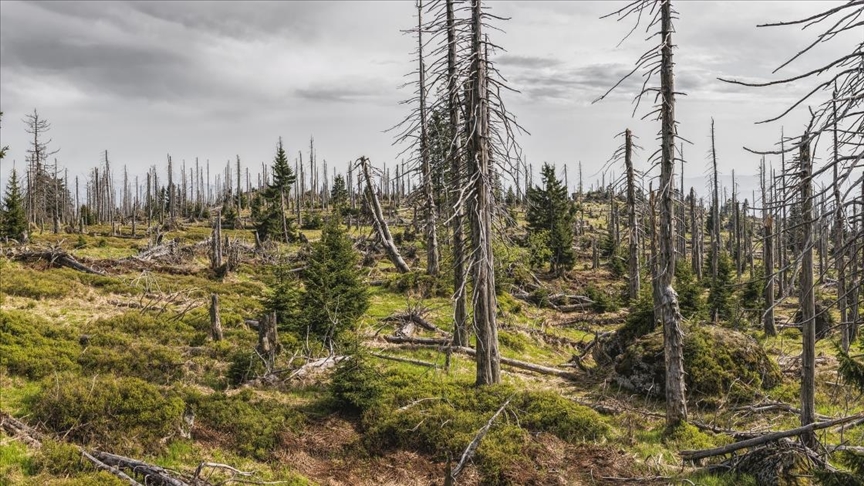Up to 40% of Earth’s land degraded: UN report
‘We cannot afford to continue taking land for granted,’ says UN’s Ibrahim Thiaw
 FILE PHOTO
FILE PHOTO
HOUSTON, Texas
A UN study released this week shows humans are killing the planet.
The UN report says up to 40% of the Earth’s land is degraded, threatening roughly half of the global Gross Domestic Product ($44 trillion).
“At no other point in modern history has humanity faced such an array of familiar and unfamiliar risks and hazards, interacting in a hyper-connected and rapidly changing world,” the study warns. “We cannot afford to underestimate the scale and impact of these existential threats.”
Deforestation, mining, and industrial pollution are heavily contributing to the degradation of the world’s land, which the UN says has been mismanaged and misused for decades, threatening the health and continued survival of many species.
Agriculture takes up nearly half of the world’s land area, which has seen forests decimated to create livestock ranges and crop fields. Experts say that is not sustainable in the long run.
“We need to urgently rethink our global food systems, which are responsible for 80% of deforestation, 70% of freshwater use, and the single greatest cause of terrestrial biodiversity loss,” said Ibrahim Thiaw, Executive Secretary of the United Nations Convention to Combat Desertification (UNCCD).
A growing population worldwide means a higher demand for food, but if these alarming trends continue, the UNCCD says another 11% of the world's land surface – about the size of South America – could be degraded by 2050.
“As a finite resource and our most valuable natural asset, we cannot afford to continue taking land for granted,” emphasized Thiaw.
The UNCCD says the solution to this global crisis will take a concerted effort from every country to implement projects such as restoring soil health, protecting wildlife, and improving water availability through storing rainwater or using drip irrigation.
Those efforts could yield up to $140 trillion annually in economic returns, or 50% more than the current GDP.
“Investing in large-scale land restoration is a powerful, cost-effective tool to combat desertification, soil erosion, and loss of agricultural production,” said Thiaw.
“Now is the time to harness political will, innovation, and collective action to restore our land and soil for short-term recovery and long-term regeneration to ensure a more stable and resilient future,” he added.
“Hope remains as the decade of restoration has begun.”
Anadolu Agency website contains only a portion of the news stories offered to subscribers in the AA News Broadcasting System (HAS), and in summarized form. Please contact us for subscription options.







